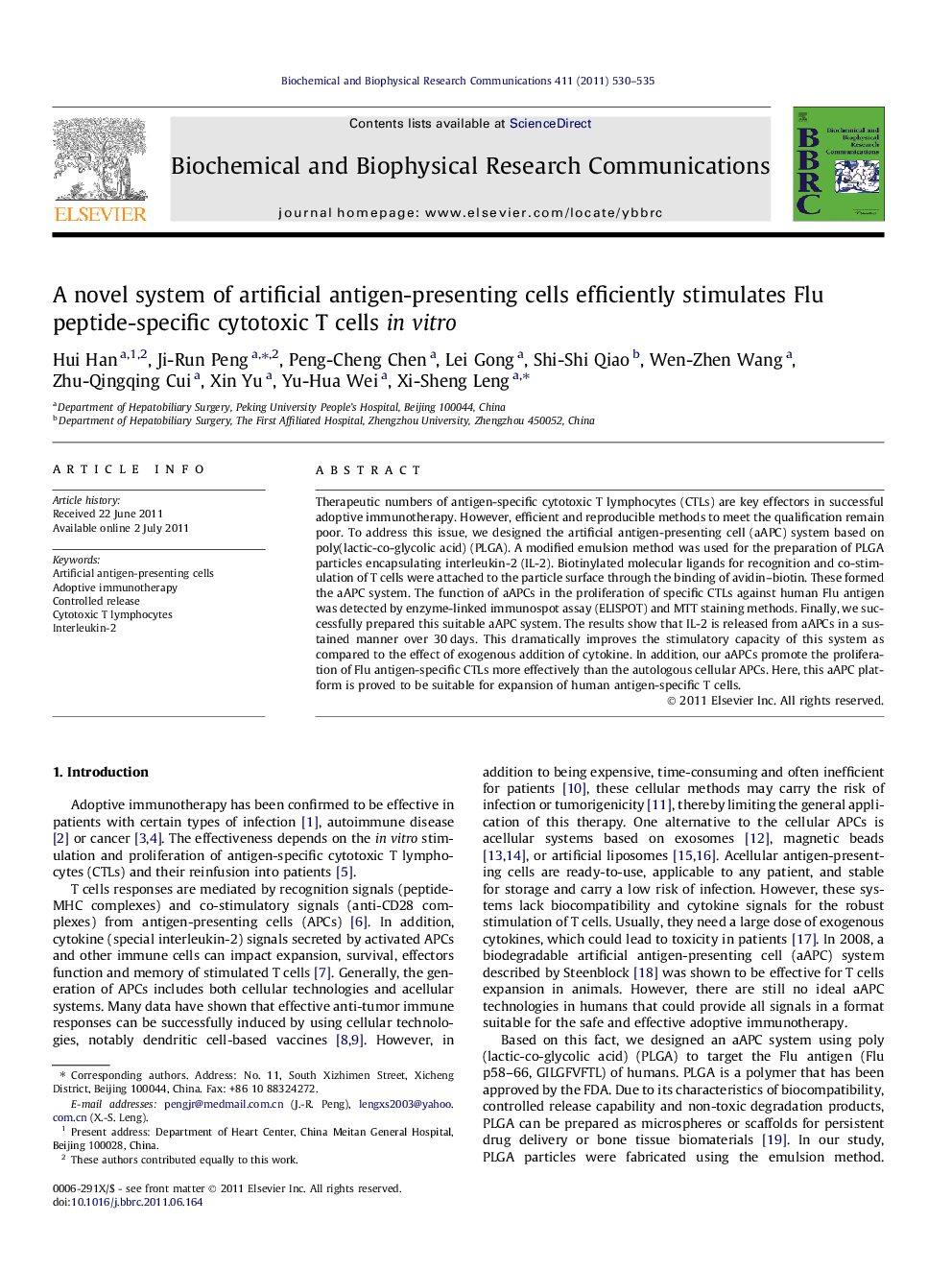| Article ID | Journal | Published Year | Pages | File Type |
|---|---|---|---|---|
| 1930407 | Biochemical and Biophysical Research Communications | 2011 | 6 Pages |
Therapeutic numbers of antigen-specific cytotoxic T lymphocytes (CTLs) are key effectors in successful adoptive immunotherapy. However, efficient and reproducible methods to meet the qualification remain poor. To address this issue, we designed the artificial antigen-presenting cell (aAPC) system based on poly(lactic-co-glycolic acid) (PLGA). A modified emulsion method was used for the preparation of PLGA particles encapsulating interleukin-2 (IL-2). Biotinylated molecular ligands for recognition and co-stimulation of T cells were attached to the particle surface through the binding of avidin–biotin. These formed the aAPC system. The function of aAPCs in the proliferation of specific CTLs against human Flu antigen was detected by enzyme-linked immunospot assay (ELISPOT) and MTT staining methods. Finally, we successfully prepared this suitable aAPC system. The results show that IL-2 is released from aAPCs in a sustained manner over 30 days. This dramatically improves the stimulatory capacity of this system as compared to the effect of exogenous addition of cytokine. In addition, our aAPCs promote the proliferation of Flu antigen-specific CTLs more effectively than the autologous cellular APCs. Here, this aAPC platform is proved to be suitable for expansion of human antigen-specific T cells.
► Adoptive immunotherapy depends on relevant numbers of cytolytic T lymphocytes. ► An ideal artificial APCs system was successfully prepared in vivo. ► Controlled release of IL-2 leads to much more T-cell expansion. ► This system is better than general cellular APCs on T-cell expansion.
